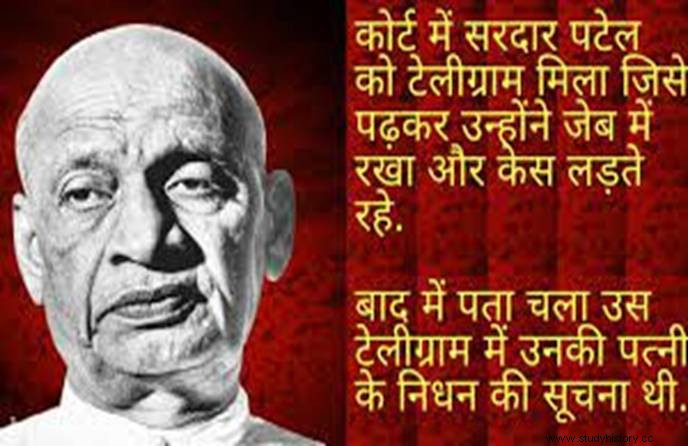
Vallabhbhai had to work day and night to send Vithalbhai to England from the accumulated capital till now and to run the expenses of two families. Sardar Patel's wife Jhaberba took care of his every need but she fell ill. He probably had a cancerous lump in his stomach.
Vallabhbhai could not pay much attention to his health as he was busy preparing for the cases. There was no cure for cancer in those days. Vithalbhai returned to India after studying barrister in AD 1908. This time he set up his office in Bombay and started advocating there.
Vallabhbhai continued to practice in Borsad. An operation was necessary to remove the lump in Jhaberba's stomach, but his health had become so bad that the body could not bear the operation. Therefore it became necessary to take Jhaberba to Bombay for treatment.
Vallabhbhai sent wife Jhaberba to Bombay with four-year-old daughter Maniben and three-year-old son Dahyabhai, to Vithalbhai.
The doctors of Bombay started treating Jhaberba but one day suddenly they had to operate Jhaberba in an emergency. Therefore Vallabhbhai could not be called from Borsad to Bombay. Vallabhbhai was busy preparing for the trial of a client, due to which he could not go to Bombay even after the operation.
After this operation, Jhaberba started recovering, but a few days later, on January 11, 1909, Jhaberba suddenly died. Vallabhbhai was informed of this tragic incident by telegram. When he was telegraphed, Vallabhbhai was arguing in a court. When Vallabhbhai read the telegram, he was stunned.
They did not want their client to be harmed for any reason whatsoever. So he read the telegram and put it in his pocket and continued the debate. After the trial was over, the magistrate asked Patel what was written in the telegram he had found during the arguments. Patel took the wire out of his pocket and extended it to the magistrate.
Patel believed that personal sensitivity had its place, but it was necessary to fulfill the duty towards the client from whom he had taken the fee. It was because of this loyalty that Patel had gained so much popularity in the work of advocacy that he used to have a plethora of cases.
His reputation remained even when he came from London after passing the barrister. This was the reason why Patel's advocacy went so much that Nehru, Jinnah and Gandhi's advocacy faded before him.
